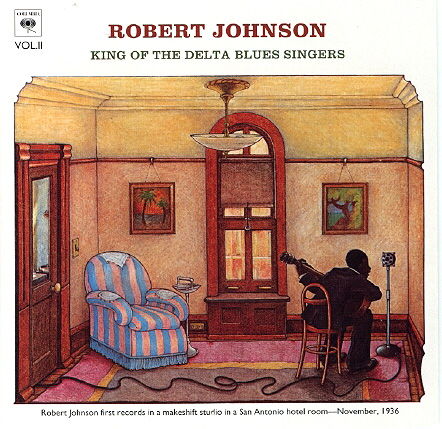My students laugh at the degree to which I tend to preface pronunciamentos with disclaimers and provisos (I pretty much live and die--or at least mostly avoid being a pedantic asshole--by ubiquitous deployment of the preface "In my observation and experience") but I think some do not realize just how much remediation this Big an Ego requires. I used to hate hate HATE it when a professor would say, in response to whichever horrific tale of abuse and woe, or fear and desperation, some student had shared, "Well, I remember when I was a student and I know that it was not nearly as bad as I thought it was" (stipulation: all professors should monitor their conversation, every damned minute of the day, for incidences of the first-person pronoun) and blithely proceed, within a half-sentence, to move away from a consideration of the actual experience of the person opposite, and immediately toward Yet Another Rumination based upon their own self-regard.
I have a Big Enough Ego--hell, I write a freakin' daily blog.
My Ego doesn't need the encouragement of perpetually extrapolating from--or indulging in--my own anecdotal experience. It doesn't hurt me to be reminded--or to remind myself--that my experience is not ubiquitous, or that the fact I know a lot about a few things (line from my great Teacher Tom Binkley: "a musicologist is a person with a very tiny, very active mind"), does not/should not/cannot mean I'm equally knowledgeable or insightful about anything else. In fact, that much expertise in one area can, at least as frequently, yield enhanced ignorance in others. And I better damned remember that limitation--and, of course, I regularly forget to do so.
But pretty much all Zen Buddhist traditions emphasize the paying-of-attention to the moment-by-moment realities of daily existence, and seek to "unhook" the human consciousness's unrealistic tendency to spend entirely too much time obsessing about past error or future eventualities.
One of the ways that Zen teaches this "present attention" is through meditation: engagement in a highly-repetitive, very simple activity (like, say, counting inhales and exhales, or "feeling the breath going in and out of the nose", or the repetition of a paradoxical conundrum, or even a single word) which permits the practitioner to, very gradually, learn to pay attention to small, simple, present things. Out of a conviction that such Practice might lead, eventually, to an enhanced ability to pay Attention to larger, not-simple, but still present (or maybe eternal) things (as one of my early Zen teachers said "Sit your ass down on the mat, shut the hell up, and observe what happens").
It's the quality of attention that the Zen practitioner is expected to learn to apply to the tea ceremony, or calligraphy, or chanting. Or not getting hit in the dojo. Or to the moments of suffering that shape existence. Or, maybe--sometimes, the other side of the same coin--to the moments of insight when the veil of distraction, self-absorption, past regret or future fear with which we all mostly see the world, is torn, cracked open, and we experience satori: that is, when we actually engage with the present.
It's the same thing a great dancer does, or musician, or teacher--steady repetitious practice, concentration upon and refinement of small discrete details, with a whole hell of a lot of self-discipline and pretty damned little "but what is the 'point' of my doing this???", hour after hour after day after day after week after year after decade, so that, occasionally, when the conditions are right, when the Practitioner engages with the present, s/he can drop all consciousness and allow the expression of the universe to flow through. I'm a very bad meditator but a very good practitioner--40 years of working to get better at the mechanics of playing a musical instrument will do that (better your concentration, I mean--even if you don't get a whole lot better in the talent department). If, as I tell Dharmonia, Buddhist progress could be conferred on the basis of numbers of thousands of hours of practice time (just as if it could be conferred on the basis of the numbers of edible meals cooked with care for people you love), then I (and a lot of other musicians and short-order cooks) would be enlightened already. A bad monk--but a good tenzo. No enlightenment (at least not yet)--but thousands upon thousands of hours of some kind of practice.
One other way that we practice attention is through the use of Gathas: small, simple, regular sayings which we attach to daily chores or other activities, and that can serve as a simple mechanical reminder that such "mundane" (really, what else is there in the universe except "the mundane"?) activities are likewise part of the sacred present. So, you tape a slip of paper on the land-line's receiver that reads, "hearing the bell of the telephone, I remind myself to wake up to the sounds of life all around me"; on the cupboard door, "taking down this cup, I remember to empty my own cup of preconceptions so I may be open to learning new things"; or, my own particular construction, before eating "May all beings be fed".
Although it may seem a fairly simple, repetitious, or even automatic/unthinking kind of habit, the gatha is actually a pretty effective (and certainly low-effort--how long does it take to recite "May all beings be fed"?) means of reminding us that the sacred is not separate from the mundane, the future from the present, or our own consciousness from the consciousnesses around us.
So one of my gathas is, before eating, to recite "May all beings be fed", because it reminds me to wake up and pay attention to the fact that some beings are not being fed and that I am both fortunate to have food, and obligated share it.
Likewise another gatha, to remind me me not to extrapolate excessively, unsuitably, or egocentrically from my own personal history. This one takes me outward, reminds me that my experience is neither ubiquitous, authoritative, or independent of others--and teaches me a daily repetitious healthy does of humility: hence, before Dispensing Opinion to a student, always preface with the gatha:
"In my observation and experience..."
Below the jump: Mister Man sacked out in the guest room:





 The image also picks up on a story that was told by the great recording engineer H. C. Speir about Robert's first sessions in a San Antonio hotel room in 1936--a story that was picked up again in Walter Hill's flawed but evocative
The image also picks up on a story that was told by the great recording engineer H. C. Speir about Robert's first sessions in a San Antonio hotel room in 1936--a story that was picked up again in Walter Hill's flawed but evocative 
